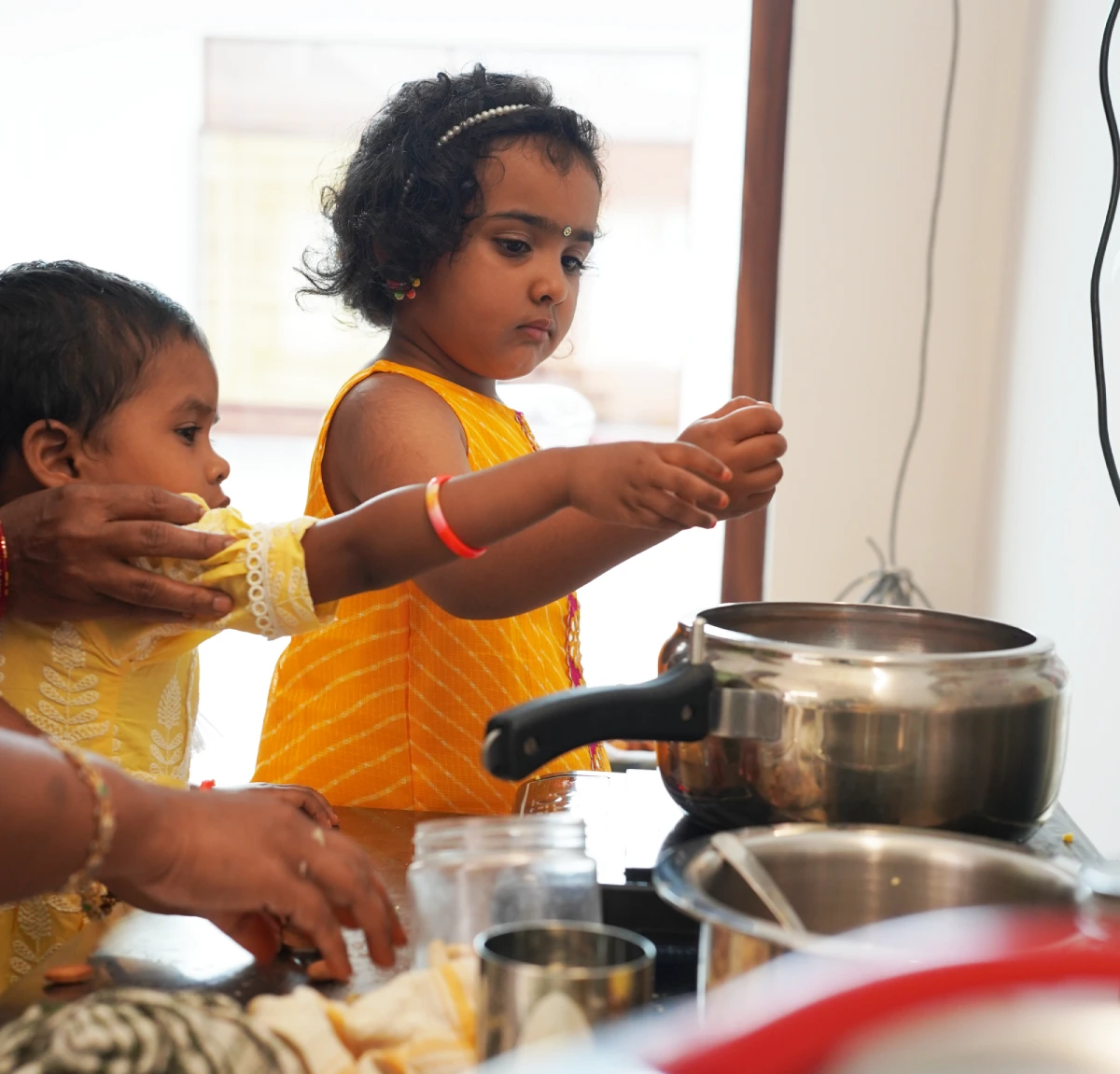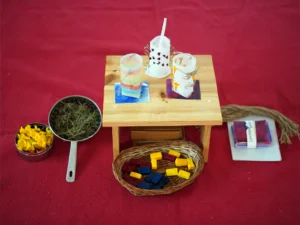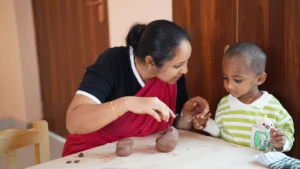Nutrition in growing children is more than just charts and diets. It is the nourishment alongside the experience, bonds, and relationship they build with food that carries into adulthood. The way children encounter food in their early years, through rhythm, ritual, and imitation, becomes the foundation of how they relate to nourishment throughout life. Beyond filling the stomach, food weaves a sense of connection with the body and the self.
The Foundation: What the Body Needs
The first step in understanding nutrition for young children is to see how the main food groups contribute to their growth and well-being:
- Proteins help build muscles and repair tissues after play and activity.
- Carbohydrates provide the daily fuel that sustains energy and stamina.
- Healthy fats support brain and heart development, while also helping the body absorb essential vitamins and minerals.
- Vitamins and minerals strengthen bones, build immunity, and nourish the body inside and out.
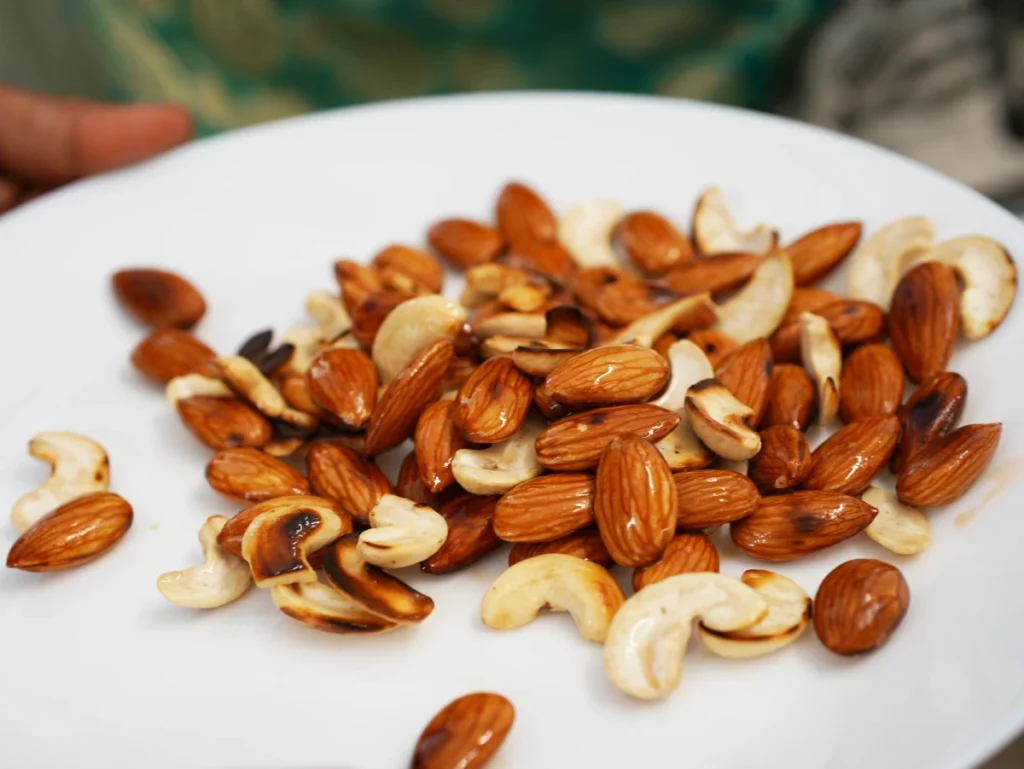
Small Appetites, Gentle Approaches
While children need wholesome and balanced nutrition, their appetites are naturally small. Expecting them to finish large portions often creates tension at mealtimes. Instead of worrying or forcing, it helps to see food as something that can be offered in small amounts throughout the day. Gentle consistency nurtures openness, while pressure and scolding risk building resistance and an unhealthy association with food.
Food as Experience
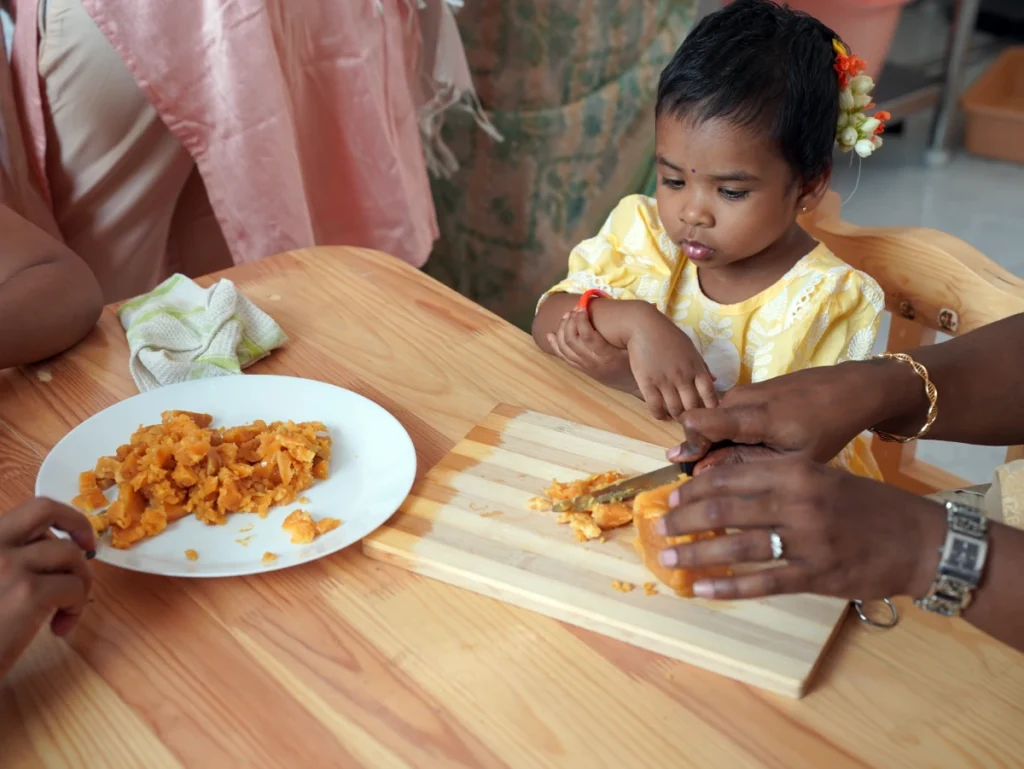
Nutrition is not just about what is eaten, but also about how it is eaten. Children explore food with all their senses – touching, smelling, tasting, and even making a mess before learning to clean up. Eating with the hands, holding bite-sized pieces, or being part of simple food preparation deepens their connection with meals.
Even washing vegetables or helping stir a pot allows children to feel involved, and this participation often makes them more open to tasting what they have helped create.
Rituals and Relationships with Food
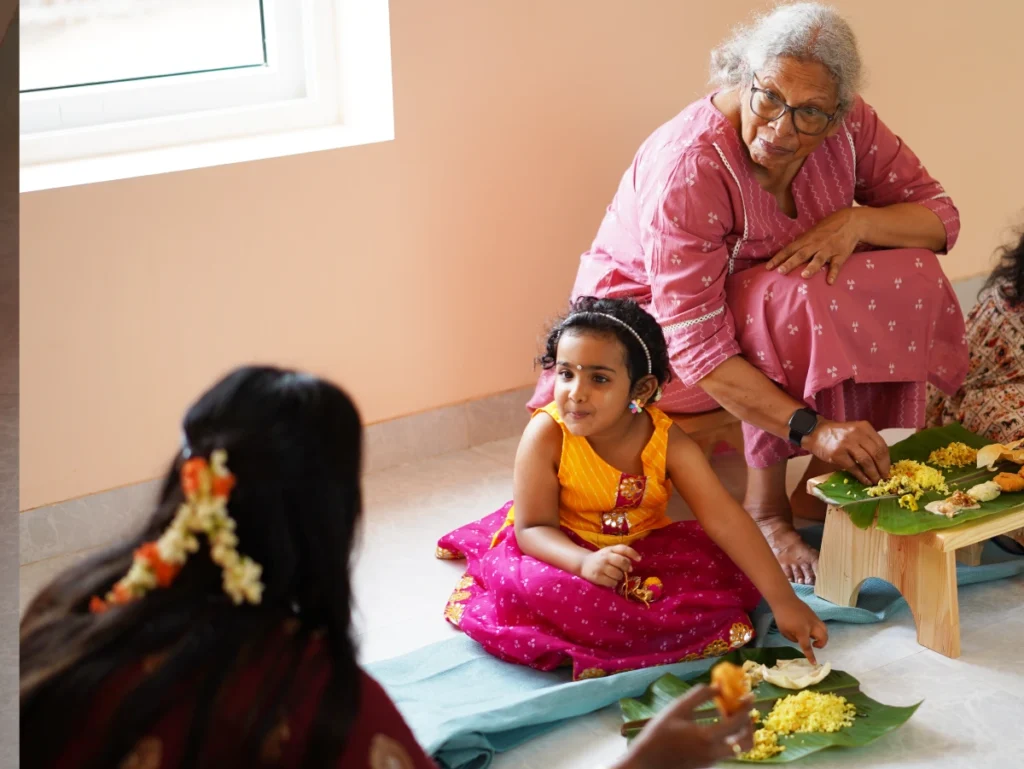
Rituals around food bring rhythm and meaning into everyday life. From shopping at the market and washing produce, to cooking together and sitting down for shared meals, these experiences anchor children’s relationship with nourishment. Stories woven around meals, whether personal anecdotes of a grandmother’s dish or fairy tales about magical beans, give food a place in memory, culture, and joy.
Navigating “Unhealthy” Foods
Children live in a world where packaged and processed foods are present and visible. While the first step at home can be to limit access by not stocking them, other places like birthday parties, supermarket visits, a friend’s house, or a grandparent’s indulgence, may not always go as intended. It is natural that children may want to try what they see.
Rather than strict restrictions, which often lead to stronger cravings, it is more helpful to allow these foods occasionally, in moderation and in the presence of adults. In this way, children learn balance, self-regulation, and awareness.
Equally important is the role of adults as models. Children notice what parents, teachers, and elders eat. They learn not only from what is said, but from what is lived.
Fussy Eating, Allergies, and Intolerances
Fussy eating is common in the early years. Repeated and consistent exposure to different tastes and textures gradually expands a child’s openness. At the same time, it is important to observe if food itself is causing discomfort.
Allergies are immediate and serious reactions such as rashes, swelling, or difficulty breathing. These require urgent medical care and strict avoidance.
Intolerances, on the other hand, show up as bloating, stomach pain, or irritability. These are not life-threatening and often ease as the gut matures. With patient monitoring, parents can better understand what a child can tolerate, and some foods can be reintroduced as the child grows.
The focus here is not fear or restriction, but awareness and patience.
Closing Thoughts
Food in the early years is about more than nutrients, it is memory, habit, exploration, and joy. When meals are approached with balance, patience, and shared meaning, children not only grow in strength but also in their lifelong relationship with nourishment.


